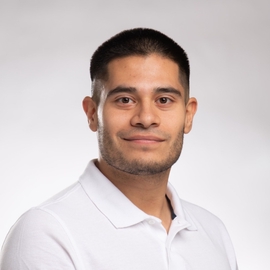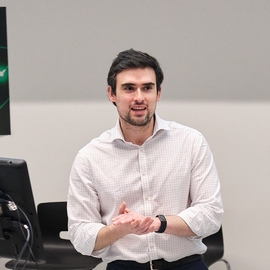Abstract
Complex systems which exhibit different dynamics based on their operating region pose challenges for data driven control because a single global model may not capture the varying dynamics of the system. One solution is to use hybrid system identification to learn the location of operating regions and dynamics within each region from data, yielding a more accurate multi-model of the system. This article proposes a novel method of hybrid system identification through spectral clustering with a custom similarity function. A case study of a chemical process illustrates benefits of this approach for Model Predictive Control.
Publication
Computer Aided Chemical Engineering

AI Research Scientist at American Express, former PhD student at OptiML (2021-2025)
I am a PhD candidate at Imperial College London, where my research focuses on the intersection of reinforcement learning, differentiable programming and nonlinear optimal control. Curiosity driven, usually by applied mathematics and computer simulations with applications over multiple fields! Previously, I worked in data science and software engineering within the energy and food industries in Mexico. I have a background in theoretical and computational physics.

Principal Investigator of OptiML
Antonio del Rio Chanona is the head of the Optimisation and Machine Learning for Process Systems Engineering group based in thee Department of Chemical Engineering, as well as the Centre for Process Systems Engineering at Imperial College London. His work is at the forefront of integrating advanced computer algorithms from optimization, machine learning, and reinforcement learning into engineering systems, with a particular focus on bioprocess control, optimization, and scale-up. Dr. del Rio Chanona earned his PhD from the Department of Chemical Engineering and Biotechnology at the University of Cambridge, where his outstanding research earned him the prestigious Danckwerts-Pergamon award for the best PhD dissertation of 2017. He completed his undergraduate studies at the National Autonomous University of Mexico (UNAM), which laid the foundation for his expertise in engineering.